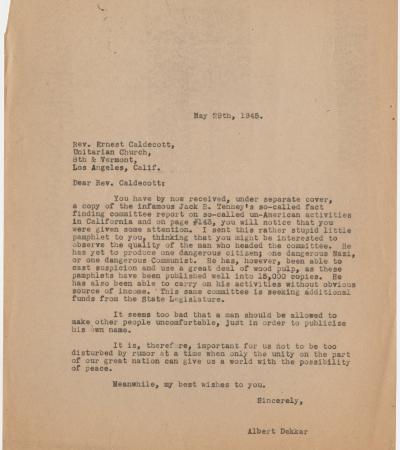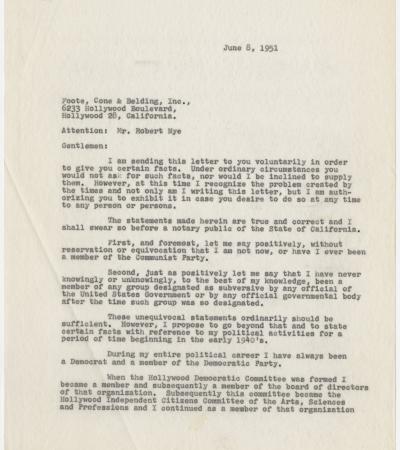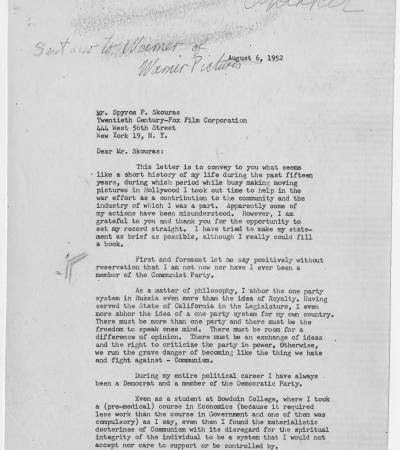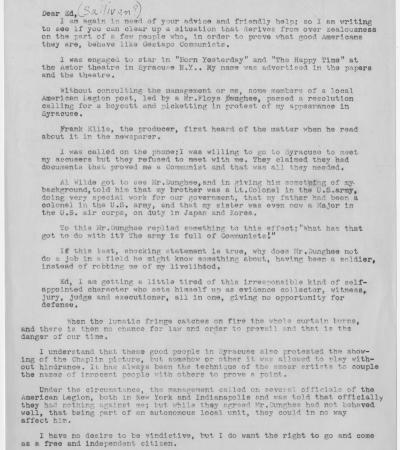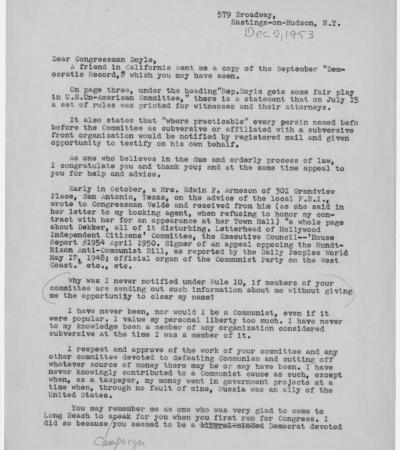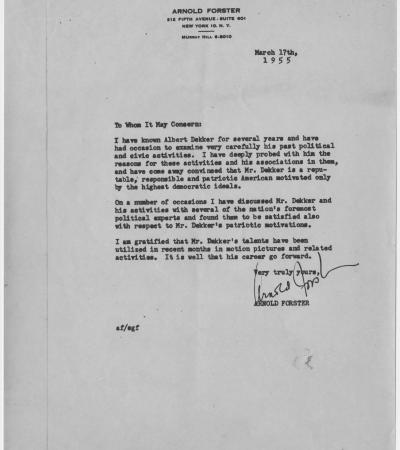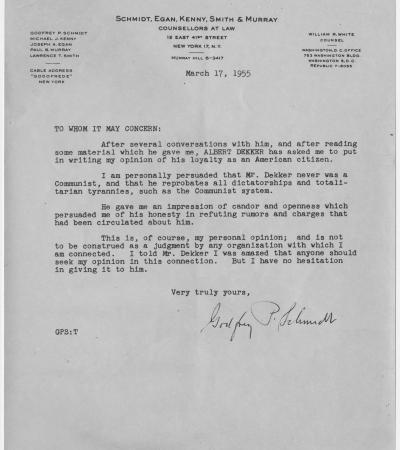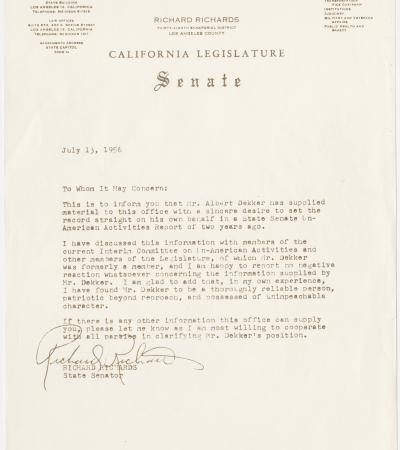Albert Dekker was born in Brooklyn, New York, in 1905 as Thomas Albert Ecke Van Dekker. He began acting in high school stage productions but in college intended to become a psychiatrist. A friend talked him into an acting career instead. He made his professional acting debut in theater in 1927. After ten years, Dekker made his Hollywood debut in 1937 in The Great Garrick. Most of his remaining career was as a film actor. He appeared in about 70 films from the 1930s to the 1960s, many times playing villains. Off-screen Dekker maintained an interest in politics and, in 1944, won a seat as a Progressive State Assemblyman in California; however, he resigned in 1946 citing the lack of pay and the need to keep his acting career going. In 1949, he was quoted as saying that the communist-hunting U.S. Senator Joseph McCarthy was "insane." This led to his unofficial blacklisting in Hollywood where he was unable to find work at any studio. To make ends meet, he toured in New York and London doing poetry readings and was booked for speaking engagements for colleges and literary groups. His career would transition again to stage roles and later to television with some film roles beginning in 1954.
Additional content for this collection can be found in the "Inventory for collection.”
Letter to Reverend Ernest Caldecott from Albert Dekker, May 29, 1945
Dekker criticizes Republican California State Senator Jack B. Tenney for leading anti-communist investigations in California as head of the California Senate Factfinding Subcommittee on Un-American Activities ("Tenney Committee"). Rev. Ernest Caldecott was minister of the First Unitarian Church of Los Angeles (1933-1947) and signer of the Humanist Manifesto.
Notarized letter to Foote, Cone & Belding, attention Robert Nye, from Albert Dekker, June 8, 1951
Dekker writes to advertising agency Foote, Cone & Belding that he has never been a member of the Communist Party and he explains why his name showed up numerous times in the Third Report on Un-American Activities in California.
Letter to Spyros P. Skouras from Albert Dekker, August 6, 1952
Dekker writes to the President of 20th Century-Fox Spyros Skouras detailing his refutation of communism accusations made against him by California State Senator Jack B. Tenney's California Senate Factfinding Subcommittee on Un-American Activities.
Letter to Ed Sullivan(?) from Albert Dekker, October 23, 1953
Dekker writes to Ed (Sullivan?) for assistance in dealing with an American Legion post in Syracuse, NY, that threatens to boycott and picket Dekker's appearance there. The Legion post accused Dekker of being a Communist.
Letter to U.S. Representative Clyde Doyle from Albert Dekker, December 2, 1953
Dekker writes to Democrat U.S. Representative Clyde Doyle of California that he is not a communist despite accusations. Doyle served on the House Un-American Activities Committees from 1951 to his death in 1963.
Letter to Whom It May Concern from Arnold Forster, March 17, 1955
Arnold Forster writes a letter of reference testifying to Dekker's patriotism and democratic ideals.
Letter to Whom It May Concern from Godfrey P. Schmidt, March 17, 1955
Attorney Godfrey P. Schmidt writes a letter of reference testifying that Dekker is not a Communist.
Letter to Whom It May Concern from California State Senator Richard Richards, July 13, 1956
California State Senator Richard Richards writes a letter of reference testifying that Dekker supplied materials to his office to clear his name of communism accusations and that Richards believes Dekker to be reliable, patriotic and of good character.
